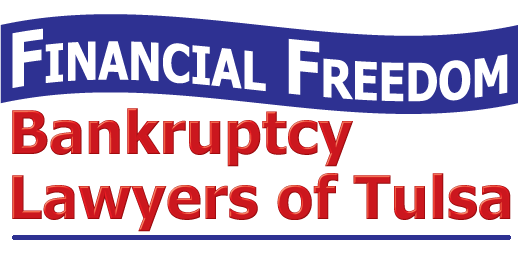Oklahoma Bankruptcy HelpWhat is the Difference Between Chapter 7 and Chapter 13 in Oklahoma?
 Bankruptcy law in Tulsa, Oklahoma enables you to request legal forgiveness of many of your debts. Not all bankruptcy filings are the same, though. People declaring personal bankruptcy often want to know what is the difference between Chapter 7 and Chapter 13 in Oklahoma.
Bankruptcy law in Tulsa, Oklahoma enables you to request legal forgiveness of many of your debts. Not all bankruptcy filings are the same, though. People declaring personal bankruptcy often want to know what is the difference between Chapter 7 and Chapter 13 in Oklahoma.
Some aspects of any personal bankruptcy filing are the same. For example, you will need to inventory your debts and assets no matter what type of bankruptcy filing you choose. You will need to attend credit counseling and you will need to appear in bankruptcy court whatever bankruptcy path you choose.
The main difference between Chapter 7 bankruptcy and Chapter 13 bankruptcy is how much debt you retain and how much debt you discharge. Chapter 7 discharges debt, in some cases by liquidating non-exempt assets. Exempt assets can include clothing, furnishing, tools, a vehicle and a primary residence. Chapter 13 provides a repayment plan that is within your means. Certain debts you cannot repay within three to five years might be discharged after successful completion of a Chapter 13 plan.
In Chapter 13, you usually do not lose property. Filing Chapter 13 bankruptcy automatically stops a foreclosure process. If you keep up your mortgage payments and pay off arrears through a Chapter 13 plan, the mortgage holder cannot foreclose.
Chapter 7 also automatically stops creditors from continuing most collection proceedings, including foreclosure. A lending institution can and most likely will ask a court to lift the foreclosure stay before the bankruptcy process is completed. Chapter 7 provides relief against foreclosure by making other assets available to pay off a mortgage.
Basic Requirements
Even if you have a qualified Tulsa bankruptcy lawyer representing you, you will need to attend at least one hearing at a your area United States Bankruptcy Court. Depending on the type of bankruptcy case you file, you might have to go to multiple hearings.
Many people in financial trouble are worried about what happens in bankruptcy court, but in most cases you should not expect any major problems.
Everyone who files Chapter 7 or Chapter 13 in Oklahoma must attend a 341 hearing or a meeting of creditors. Unless a creditor believes you are concealing assets or lied to get an account, your 341 hearing will most likely be brief and uneventful.
The second hearing, which you can have your Tulsa bankruptcy lawyer attend on your behalf, is usually when the judge accepts or denies your Chapter 7 claim. Unless you have incorrectly filled out your paperwork, you will probably not need to attend any other hearings and will likely receive a permanent “discharge” of most of your pre-existing debts.
FAQ: Chapter 13 in Oklahoma
If you declared Chapter 13 in Oklahoma, then what happens in bankruptcy court could be a little time-consuming. You will need to attend the standard meeting of creditors, even if you hire an attorney to represent you. You also must attend a plan and confirmation hearing; this phase determines the provisions of your partial debt repayment plan.
It takes three to five years to pay off a Chapter 13 in Oklahoma plan; you only get a discharge hearing once you finish that plan. You might have to attend other hearings during the course of your case, especially if you need permission to apply for new credit or have a drastic change in your financial situation. Remember, you must report both positive and negative financial changes to a bankruptcy trustee.
Additional Considerations
Keep in mind that you also must complete two credit counseling sessions to fully qualify for debt relief under Oklahoma personal bankruptcy laws. The sessions must be completed through a federally licensed credit counseling service.
One meeting will be required before your Tulsa bankruptcy attorney can even file your paperwork and the other will occur right before a judge agrees to discharge or reduce your debts.
However, you can attend these required meetings online or via the telephone if it is not convenient for you to do so in person.
Low-cost Bankruptcy Planning: Tulsa Bankruptcy Lawyer
To get the best possible outcome in your bankruptcy case, you will need to set expectations for yourself and also understand your attorney’s expectations of you.
If you’re ready to file, contact a Tulsa bankruptcy attorney at the Freedom Financial Bankruptcy Lawyers of Tulsa as soon as possible.
To receive your low-cost initial bankruptcy analysis, call the Freedom Financial Bankruptcy Lawyers of Tulsa today at (918) 786-9600.




